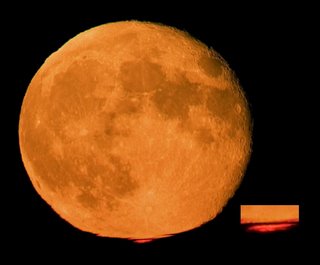after the major earthquakes that hit hawaii sunday morning, it appears that most of the telescopes on
mauna kea are all in pretty good shape. one of the
keck telescopes has some pointing and guiding issues, but the technicians predict it to be up and running in a week or so. the most damage seems to have been at the
canada-france-hawaii telescope (CFHT). the offices were shuffled and a full assessment of damage to the telescope and dome is not complete yet. check out their
website to see some pictures and to keep updated!
if youre interested, here are some
pictures from my observing run on mauna kea 3 years ago!

in the first picture, Keck I is on the left, Keck II is in the center and the NASA Infrared Telescope Facility (IRTF) is on the right. CFHT is further off to the right.
in the second, CFHT is the third from the right (actually, its the 4th from the right, but two of the telescopes have morphed into one in this photo!) and the kecks are the two little bubble domes near the middle.


